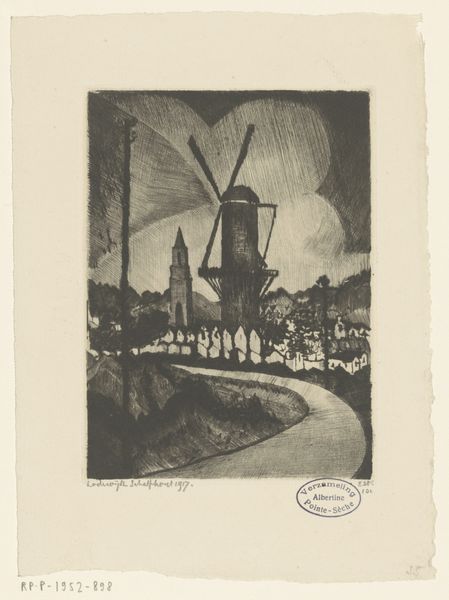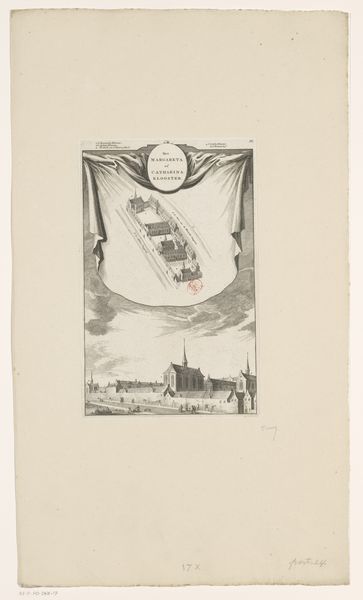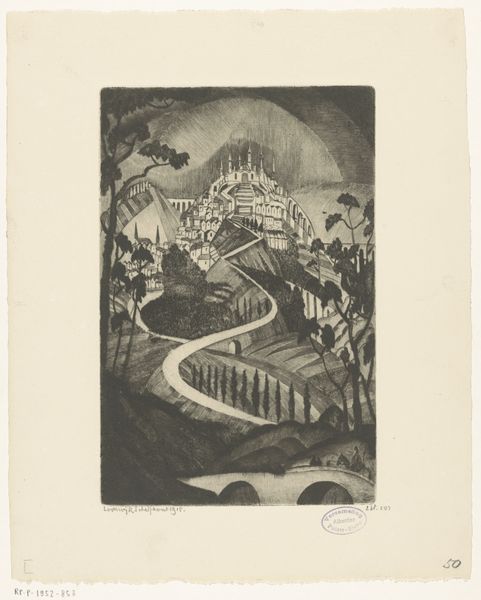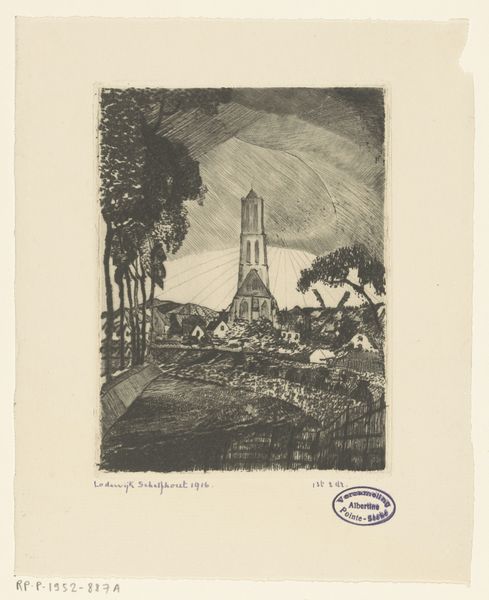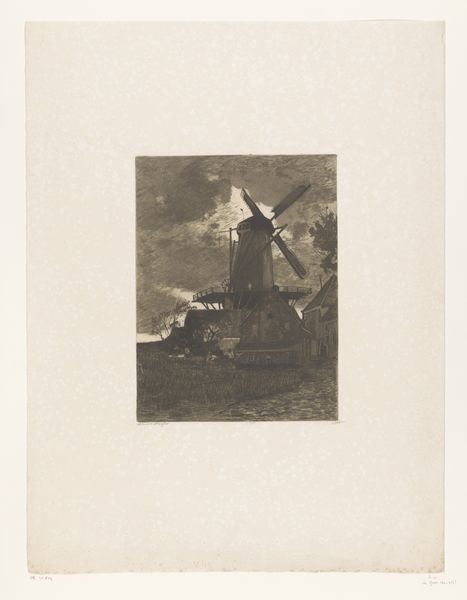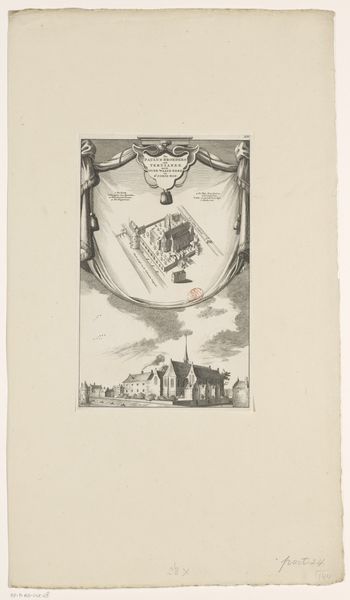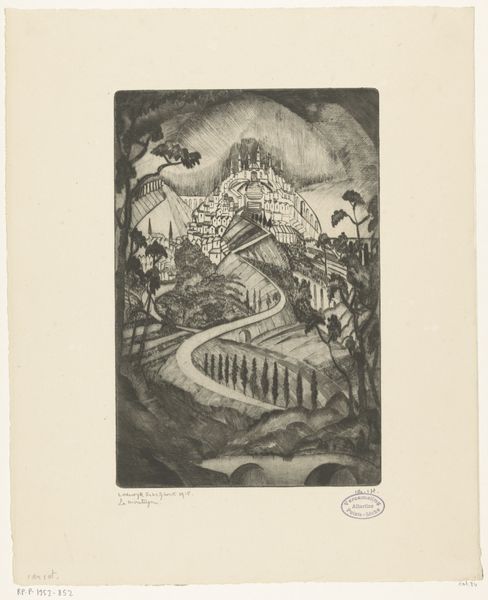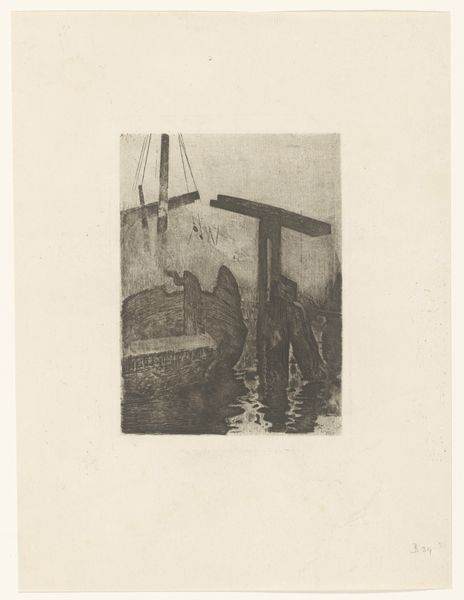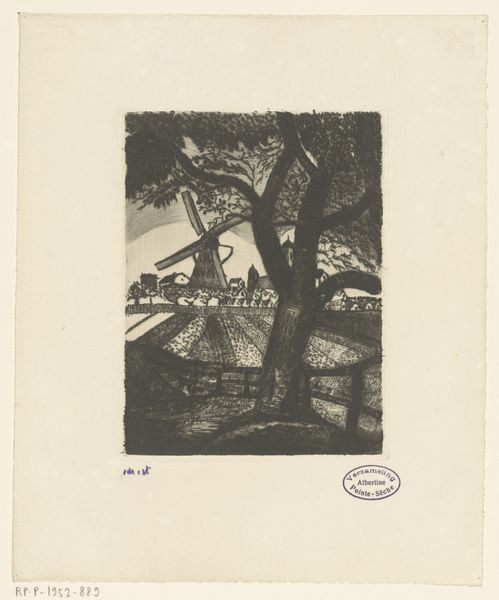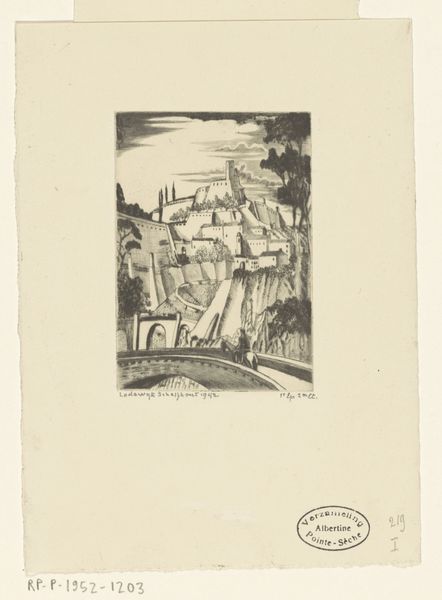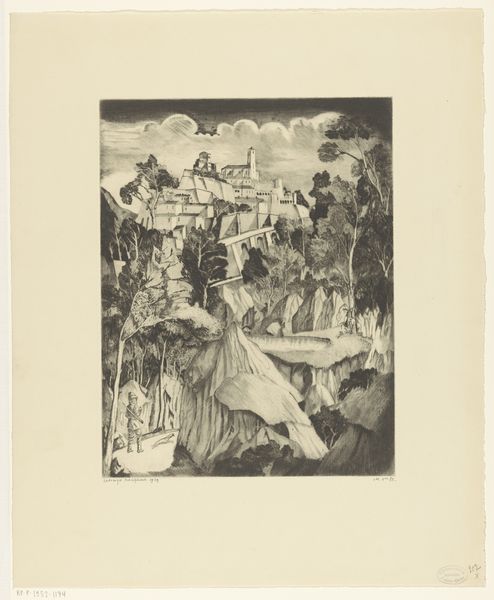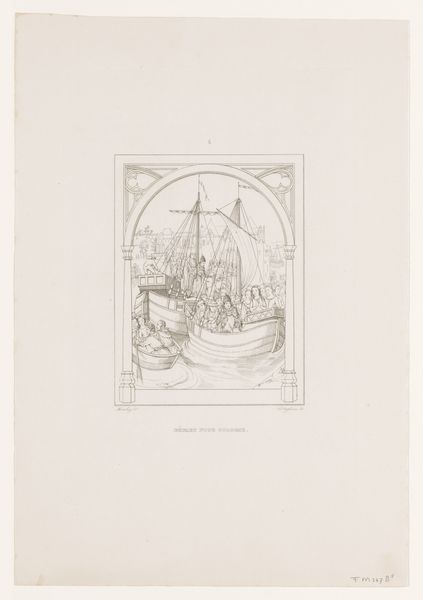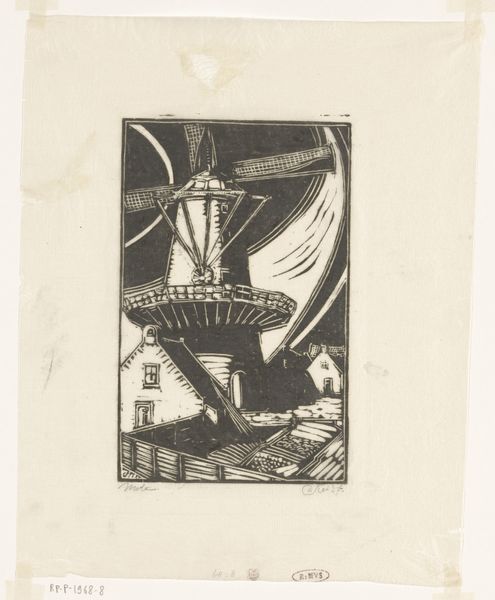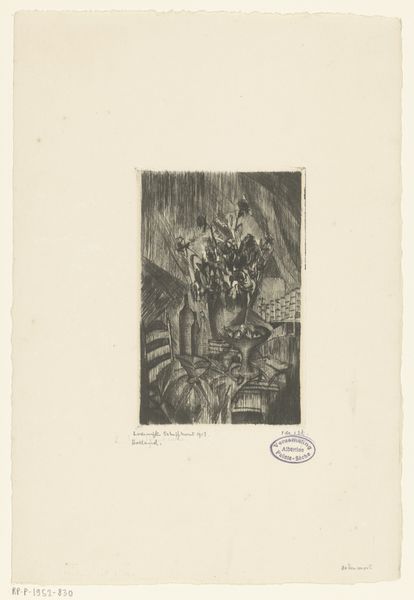
print, etching, frottage
# print
#
etching
#
landscape
#
road
#
expressionism
#
frottage
Dimensions: height 161 mm, width 118 mm
Copyright: Rijks Museum: Open Domain
Curator: Looking at this etching, I am instantly drawn in; it has such an incredible brooding feeling. There's almost an urgency to the sky, like a storm is coming. Editor: That urgency, that storm brewing, resonates so much when you situate this 1917 landscape within the historical context. Europe, already ravaged by the First World War...the anxiety, the uncertainty...it’s all palpable. We see here Lodewijk Schelfhout’s “Heuvellandschap met molen," Hill landscape with mill. Curator: And isn't it cleverly done? It's not overtly political. Rather, it feels…elemental. The looming windmill becomes this monolithic guardian, overseeing a scene with an almost haunted atmosphere. The village seems so… fragile, as if this landscape will simply absorb it back. It reminds me of a silent movie somehow. Editor: The landscape genre itself had become laden with symbolic meaning. These were troubled times. You are not just painting a pleasant picture; you are creating statements about territory, about identity, about the fragility of a certain way of life. I think Schelfhout's use of frottage and etching adds to that mood; there is a roughness here, a darkness in the texture itself. It reminds you that landscapes were frequently idealized places that were rapidly changing. Curator: Definitely. The texture provides such an edgy energy. Those scratchy marks amplify that brooding feeling so expertly. It seems expressionist, a style really gaining traction then to communicate such feelings! Even this windy road in the front is inviting but also gives this weird vibe. I feel tempted to get in and go, but at the same time I'd feel hesitant to wander on such road. Don't you agree? Editor: Absolutely. Roads can offer literal freedom but also entrapment. Remember this work comes from a time when modernity's promises felt both liberating and threatening. Schelfhout, by manipulating scale and texture, echoes this sentiment beautifully. The everyday transforms into an embodiment of historical undercurrents. Curator: Well said. This tiny artwork packs an unexpectedly powerful punch once we let its subtle complexity bubble to the surface, doesn’t it? Editor: Indeed. By engaging with the art on an emotional level, then zooming out to examine the historical and social conditions, we truly discover why Schelfhout's print lingers long after you leave it.
Comments
No comments
Be the first to comment and join the conversation on the ultimate creative platform.
